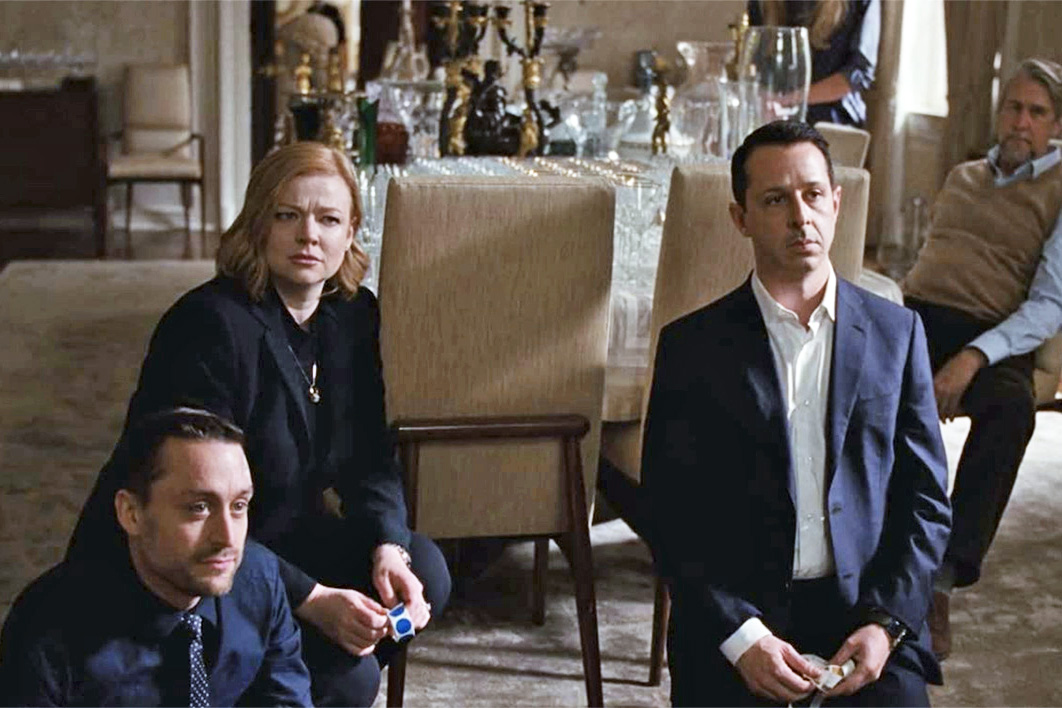
Part of the suspense generated when any highly regarded series is reaching its conclusion rests on the question of whether the finale will live up to expectations. Game of Thrones, by general consensus, failed; Better Call Saul wound up with plaudits. Succession’s showrunner, Jesse Armstrong, had set himself a daunting challenge by establishing unprecedented standards in all areas of production, and the fourth and last season raised the stakes even higher.
Wrangles between the Roy family and their inner circles had become ever more intimate and intense, alternating with large-scale public scenes: chaotic election-night coverage from a major news network; a high church funeral for magnate Logan Roy (Brian Cox) attended by a newly elected president; a showdown in the boardroom as members voted on a takeover bid from a Scandinavian tycoon.
As in previous seasons, the story’s central arc continued to be shaped by the question of who in this close but warring family would succeed Roy as head of Waystar Royco. Following the death of the patriarch, and with the prospect of a takeover, the question had reached peak urgency as the last episode went to air.
My money was on Connor (Alan Ruck), Logan’s son by a first marriage. He had never been in contention and, after a misfired run as a presidential candidate, was hanging loose on the sidelines, looking for a job. According to the conventions of the whodunnit, which apply similarly to narratives of “the chosen,” surely it has to be the one who was always around but never drew suspicion?
The devious president-elect had been courted unsuccessfully by Logan’s younger son Roman (Kieran Culkin) and was clearly unhappy with the prospect of dealing with Kendall (Jeremy Strong), the most likely candidate after his commanding impromptu speech at his father’s funeral in the previous episode.
From a political point of view, who better to head the populist news network than a self-regarding airhead? If the takeover went through, the reckless and probably clueless new owner Lukas Matsson (Alexander Skarsgård) would find Connor a much more congenial choice than Shiv Roy (Sarah Snook), who had been pushing a bit too insistently for the position of CEO.
That’s not how it turned out, of course, though the actual choice of CEO in the wash-up meets the same criteria. In a more unpredictable strategy, Armstrong’s script for the almost movie-length episode allowed the quarrels between the trio of siblings to take over, so much so that the larger arc warped and finally buckled.
In a display of ensemble virtuosity for which the three actors have become renowned, the quarrelling went from verbal rapier fights to shrill slanging matches to physical brawling, in each phase offering different kinds of entertainment to the viewing audience. At one point they all came together for a midnight reconciliation in the kitchen of their mother’s villa in Barbados — “the only hellhole in Paradise” — and regressed into a childhood game of fridge raiding, throwing bread at each other and mixing mad potions.
The scene culminated in a mock coronation as Kendall, perched on the counter, was doused in the viscous contents of the blender. Did this finally resolve matters? Kendall believed so. Don’t these three always believe what they want to believe? It didn’t occur to him that the Carnival King is crowned only for a day, and by tradition subsequently assassinated.
Performed by three actors who are brilliant clowns when occasion requires, the scene was a reminder that the series has always been about childhood. The opening credits present images of a lost world in which privileged children take elephant rides, play tennis, and pose in the doorway of the family mansion. These idyllic evocations mask the permanent damage each of them will carry into adulthood. If their father is (as he openly declares) disappointed that they have all failed him as potential successors, he has failed them as parent of three people who will never be real adults.
Kendall, wearing the parental lack of faith like a poisoned cloak, talks vapidly about being “a good person” and immerses himself in the sea as if in search of baptism, though as his mood darkens, the suicidal tendencies are obvious. Roman prattles obscenely, displaying his infantile sexuality in a kind of verbal diarrhoea. Shiv, who has learned mistrust from an early age, is not to be trusted by anyone; betrayal has become second nature to her.
As all this surfaces again, so starkly, the effect is to steer each of the three into a narrative cul-de-sac. Perhaps part of the strategy is to foreclose any second thoughts about another season. However much viewers may wish for one, there should be finality here. Why, in the first place, did we want to watch these awful people ruining their lives? That’s the paradox. The ruined humanity of the corporate world is a story of our times, and Succession has brought home its reality. •
The post Bringing it home appeared first on Inside Story.







